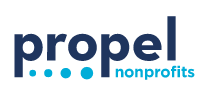A well-planned, well-managed project provides clarity, reduces risk, controls cost, and delivers value to the business. In this course, you will learn the fundamentals and best practices of project management through hands-on, real-world exercises.

A well-planned, well-managed project provides clarity, reduces risk, controls cost, and delivers value to the business. In this course, you will learn the fundamentals and best practices of project management through hands-on, real-world exercises.
Ensure that you are delivering business value by assessing a projects business case, identifying stakeholders and their relationship to your project, capturing product requirements, and establishing quality metrics to guide the development of your product and reassess the business case.
Define product scope to provide clarity for project delivery and create a work breakdown structure to define project scope for the team.
Manage your project within the planned budget and schedule by managing change and identifying and managing risks, assumptions, and constraints. Track the delivery of business value and close projects out cleanly.
By the end of this course, you should have gained a good understanding and experience of the core competencies that make a successful project manager.
Students pursuing a university-recognized and/or accredited certificate in Canada or continuing education units in the US must attend at least 90% of class time, participate in class exercises and section-knowledge checks, and score at least 70% on an end-of-class, multiple-choice assessment.
PMI is a registered mark of the Project Management Institute, Inc. This is a Byod course. Students should bring a PC, Mac, or tablet to class in order to access digital course materials. Students can download a copy of the course materials in their MyGK account.
Skills Gained
Articulate the relevance of core project management competences.
Identify key project goals and assumptions and set the stage for value delivery.
Understand how to identify stakeholders and assess how to engage with them during the project.
Meet stakeholder informational needs by creating an actionable communication plan.
Articulate product scope as part of the charter.
Become familiar with the process of eliciting and capturing requirements.
Create the WBS and dictionary that would deliver the scope in the project charter.
Perform a more detailed and systematic assessment of risk.
Articulate guiding quality characteristics for the project.
Sequence activities, create schedule, and estimate the cost of the project.
Manage change in projects.
Track value delivery in projects.
Understand the basics of a project retrospective.
Who Can Benefit
Anyone who is involved in, or affected by, projects or change management within an organization, including project managers, IT project managers, project coordinators, team leaders, product managers, program managers, project team members, subject matter experts, analysts, stakeholders, and senior managers who want to get more out of their project teams
Anyone in a leadership role who will benefit from an introduction to the art and science of project management
You should not take this course if you have taken IT Project Management or Applied Project Management. The subjects covered are the same.
Course Details
Foundations
Formal vs. informal project management
Project Management Institute (PMI) framework
Project management life cycle
Initiating
Role of the project manager
Project charter
Stakeholder identification and assessment
Progressive elaboration
Planning
Planning around project constraints
SMART objectives
Converting objectives into requirements
Decomposition of requirements into a work breakdown structure
Developing a work breakdown structure dictionary
Principles of estimating time and cost
Analyzing work and estimating duration of work packages
Determining sequence of work packages
Network diagramming and critical path analysis
Budgeting resources and cost control
Ensuring that all management responsibility areas are included in the project plan
Analyzing risks for probability and impact
Mitigating and planning risk contingencies
Preparing baselines for scope, time, and cost
Obtaining stakeholder sign-off
Executing, Monitoring, and Controlling
Team-building principles and priorities
Status and performance reporting
Management by exception
Keeping stakeholders informed and involved
Steering performance back to the baseline
Integrated change controls
Closing
Transitioning the product or service
Capturing lessons learned for the organization
Final report to stakeholders
Exercises
Formal vs. Informal Project Management
Analyze Stakeholders
Convert Vague Objectives into SMART Objectives
Create a Work Breakdown Structure
Estimate Effort and Duration for Work Packages
Perform Network Diagramming and Determine Critical Path
Estimate Resource Costs for Work Packages
Analyze and Plan for Risk
Manage Project Change
Review Lessons Learned
Hands-On Exercises
Project Management Terminology
Establish the Project Background and Develop the Project Mini Charter
Stakeholder Identification and Analysis
Project Roles and Responsibilities
Responsibility Assignment Matrix
Defining Assumptions and Constraints
Communications Planning
Risk Planning
Change Management Planning
Develop the WBS
Activity Definition
Estimate Activity Duration
Calculate the Critical Path
Develop the Project Schedule
Project Controls
Calculating Earned Value
Manage Expectations
Plan for Closure
Evaluate PM Competencies
Exercises
Formal vs. Informal Project Management
Analyze Stakeholders
Create a Project Charter and Present to Sponsor
Begin Discovery Planning: Scope Analysis
Quickly Estimate Time and Cost for Work Packages
Overall Risk Review
Summarize and Report to Management: End Discovery Planning
Begin Iterative Planning: Update Strategy and Revise Scope Documents
Time Analysis: Estimating and Network Diagramming
Cost Analysis
Risk Analysis: End Iterative Planning
Baseline Planning: Create PMB and Report to Management
Monitor and Control: Manage Discovered Change
Closure: Lessons Learned Survey
The world of technology is constantly changing, giving us the power to break new ground, connect more meaningfully and change the world for the better. This rapid pace of change rewards the people and organizations that can keep pace with it. We understand that progress is enabled by knowledge.
We know you’re committed to excellence in everything you do, and you deserve no less from your training partner. As a certified and awarded training partner for many of today’s top cloud providers and software vendors, ExitCertified is recognized as an industry leader.
Year after year, ExitCertified is named to the Top 20 IT Training Companies list compiled by TrainingIndustry.com. Of clients submitting reviews, 97 percent would recommend ExitCertified training.

Budgeting is more than entering numbers into a spreadsheet. Learn how to create your budget (your playbook) to become more impactful to those you serve.

In this section, we cover the basic aspects of budgeting and how budgeting benefits your progress toward attaining your desired lifestyle and reaching your financial goals.

PMP (Project Management Professional) certification training courses are designed to help individuals prepare for the PMP exam, a globally recognized credential for project managers. These courses provide the knowledge and skills required to manage and lead projects effectively, according to best p...

Unless you expect your organization to be stable in the short, medium and long term, you need to understand how to create long-term balance sheet and cash flow projections. Growing organizations must know whether they will have the resources to execute their business plan.

Budgets are the foundation of nonprofit finance and are vital to your organization’s strategic planning and management. Budgeting can seem overwhelming, but it doesn’t have to be.
© 2025 coursetakers.com All Rights Reserved. Terms and Conditions of use | Privacy Policy